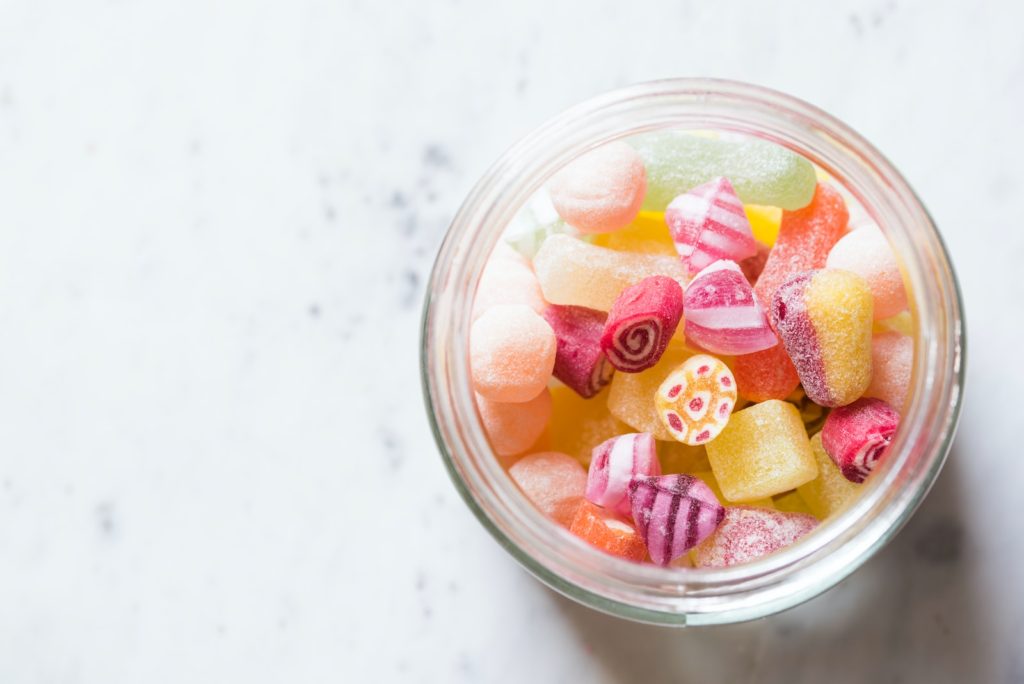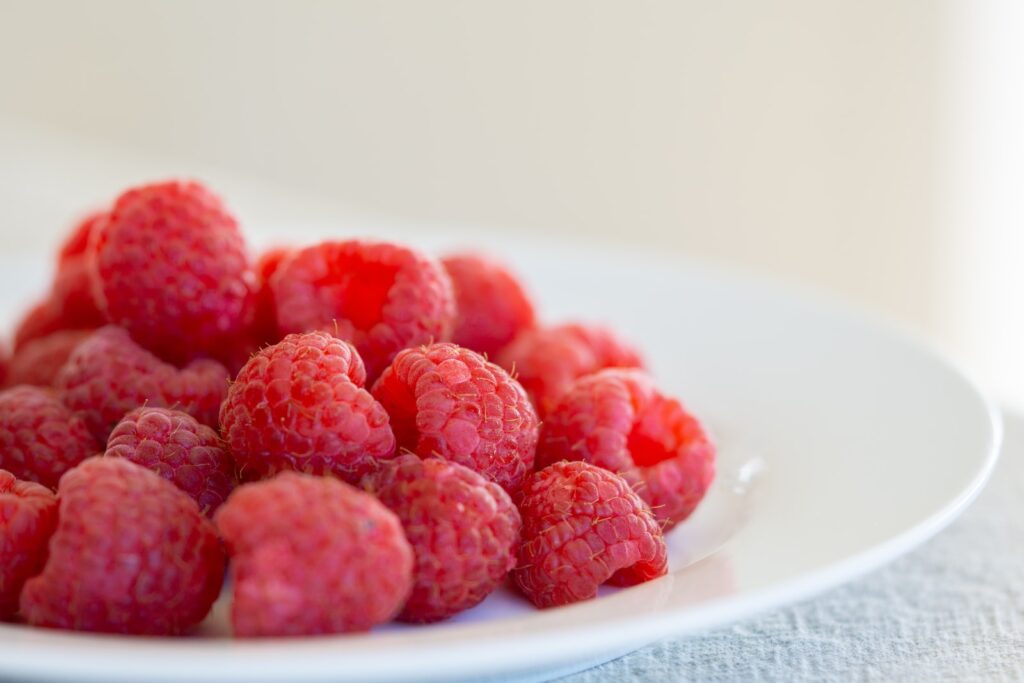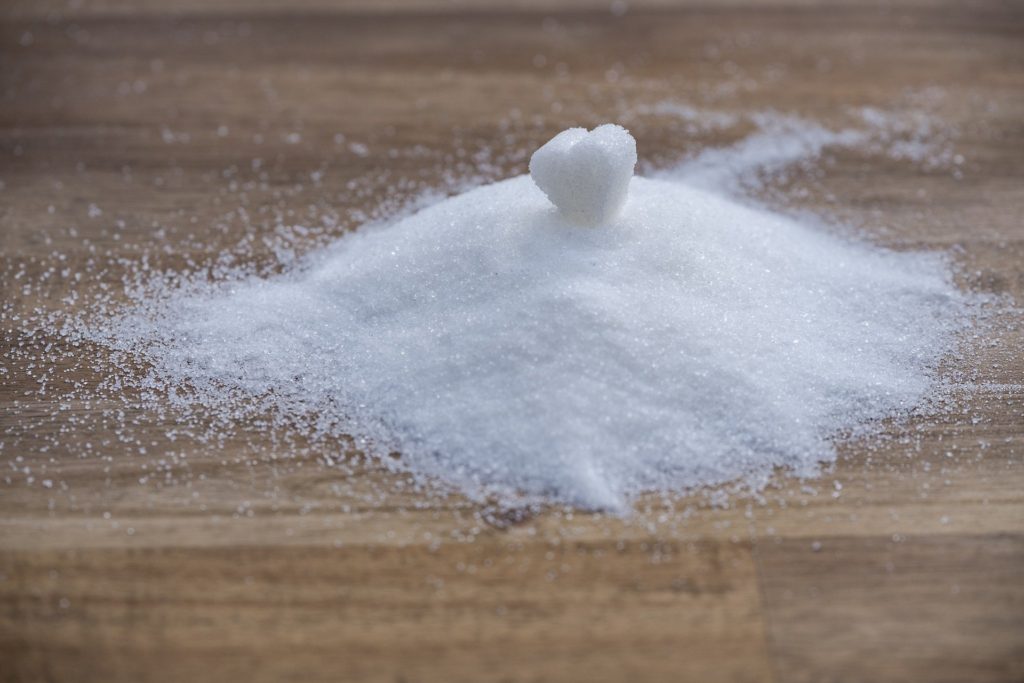Artificial sweeteners, like sugar, can be addicting.
Artificial sweeteners are commonly used to reduce the calorie content of foods and beverages without sacrificing their sweetness.
As a result, individuals who regularly consume products that contain artificial sweeteners are usually at a substantially lower risk of developing obesity and related diseases such as type 2 diabetes.
However, not everyone is sold on artificial sweeteners.
There have been many concerns about the safety of these ingredients, with some people suggesting that they may even be more harmful than regular sugar.
Another common concern is whether artificial sweeteners are addictive in the same way that natural sugars are.
In this article, we’ll take a look at this and other facts about artificial sweeteners to help you understand whether they have any benefits or potential harms in your diet, if they’re addicting or not, & if you should completely remove them from your diet or not.
What Are Artificial Sweeteners?
Artificial sweeteners are non-nutritive sweeteners that have been specifically manufactured to be intensely sweet and do not contain any calories. They’re different from most other sweeteners like sucrose (table sugar) and fructose (fruit sugar) which are found in foods and have calories.
The three most common artificial sweeteners are:
- Cyclamate – This was the first artificial sweetener to be manufactured and approval for its use was granted in the 1960s. Cyclamate is about 30 times sweeter than sugar and is often used in combination with other sweeteners such as aspartame to reduce the overall bitterness of the product.
- Saccharin – This sweetener is about 300 times sweeter than sucrose and is often used in products that are baked or roasted as it is heat stable. Saccharin is also known to have a slightly bitter aftertaste that can sometimes be noticed in beverages. Cyclamate and saccharin are both approved by the FDA as artificial sweeteners.
- Aspartame – Aspartame is a more modern artificial sweetener that was approved for use in the 1980s. It is approximately 200 times sweeter than sucrose and is found in a wide range of low-calorie foods and beverages.
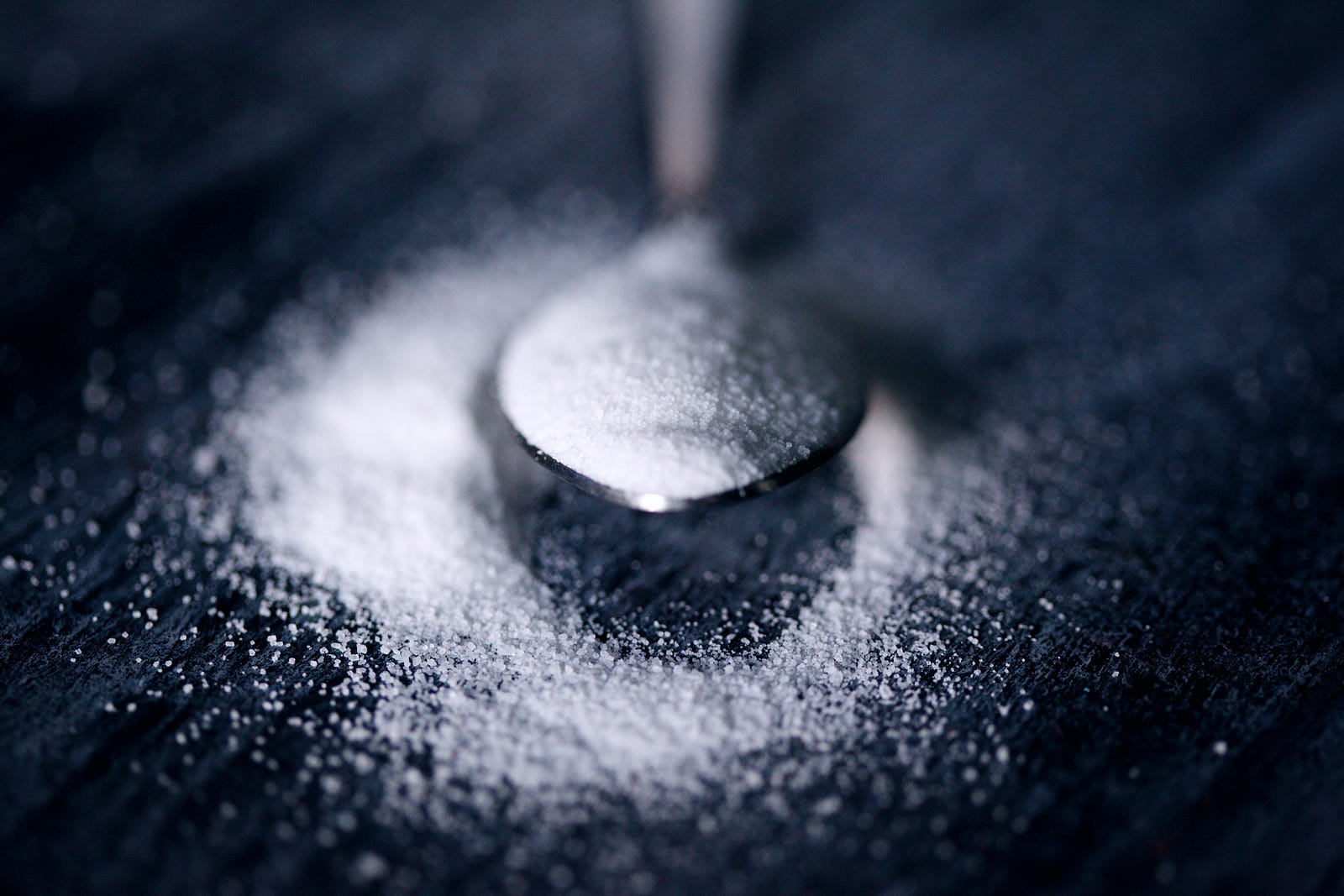
How Are Artificial Sweeteners Made?
Artificial sweeteners are manufactured from chemicals that are extracted from plants or minerals. The original plants or minerals are then separated from the final product. Additionally, some artificial sweeteners are synthesized in a lab from simple chemical building blocks.
For cyclamate and saccharin, the sweet-tasting chemicals are extracted from a species of flowering plant known as the Chinese sweet wormwood (which is not related to the wormwood plant that is used to make absinthe.)
The leaves of this plant contain two common chemicals: cyclohexane-1,2-diol and cyclohexane-1,2,3-tricarboxylic acid.
And for aspartame, the sweet-tasting chemical is synthesized from the amino acids phenylalanine and aspartic acid, both of which are naturally present in the human body. The amino acids are chemically bonded with methanol to create the final sweetener.
How Are Artificial Sweeteners Different From Natural Sugars?
Both natural sugars and artificial sweeteners can be used to achieve a similar result: to add sweetness to a food or beverage without adding calories or nutrients.
However, there are also a number of key differences between the two.
The main differences between artificial sweeteners and natural sugars are as follows:
- Calories – Natural sugars are a complex mixture of different types of sugars, including glucose, fructose, and sucrose. All of these sugars contain calories, but the amount found in different types of sugary foods can vary widely. For example, a single serving (100 grams) of fruit can contain anywhere between 13 and 65 calories. By contrast, artificial sweeteners are intensely sweet chemicals that have no calories. For example, a single serving (40 grams) of aspartame contains 0 calories. This can make artificial sweeteners much more suitable for individuals who are trying to cut calories from their diet, such as individuals who are trying to lose weight.
- Taste – The taste of artificial sweeteners can vary, but it is typically much more intense than the taste of natural sugars. And, some sweeteners, like Stevia, also have a weird aftertaste.
- Metabolization – Unlike natural sugars, artificial sweeteners do not break down inside the body and can be excreted without being metabolized. This helps avoid any harmful side effects, such as blood sugar spikes, that can occur when consuming natural sugars.
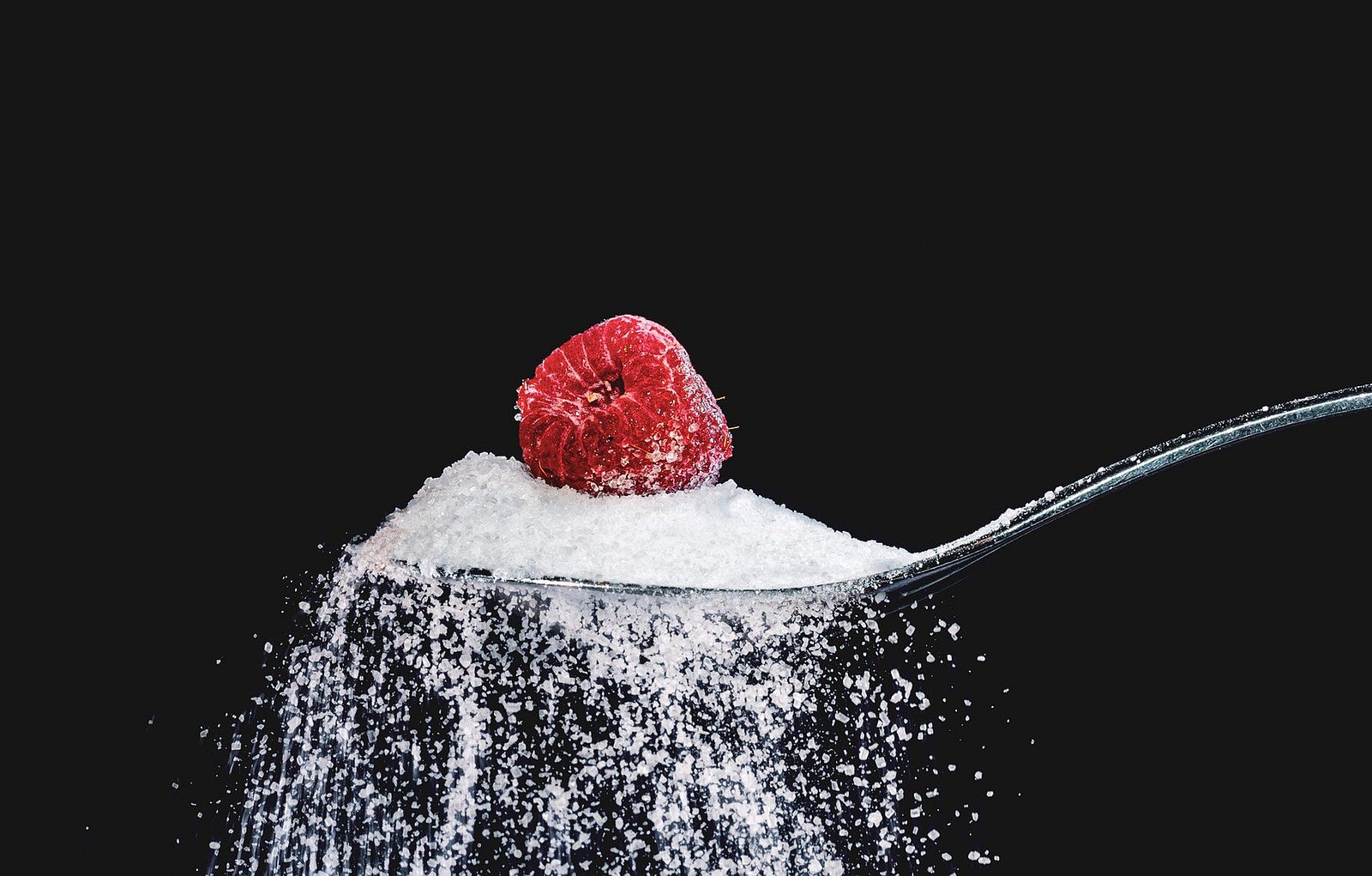
Potential Benefits of Using Artificial Sweeteners
Here are some of the biggest benefits of using artificial sweeteners:
- Reduce Blood Sugar Spikes – A large body of scientific research has found that replacing sugar with artificial sweeteners can help reduce blood sugar spikes and insulin levels. This, in turn, can help people who are at risk of developing type 2 diabetes manage their blood sugar levels and avoid future complications. It can also immensely help people who’re trying to lose weight.
- Reduce Carb Intake – If you’re on a low-carb diet, like keto, you probably know that you can’t eat sugar. However, if you still want to enjoy sweet food without eating sugar & raising your carb intake, you can use artificial sweeteners.
- Reduce Calorie Intake – One of the core benefits of using artificial sweeteners is that they reduce the calorie intake of a person’s diet by replacing sugar with a non-caloric alternative. This can help people who are trying to lose weight by reducing their overall calorie intake.
Potential Harms of Using Artificial Sweeteners
Here are some of the potential harms of using artificial sweeteners that you should also consider:
- Most Artificial Sweeteners Can Have Negative Side Effects – Most artificial sweeteners can have negative side effects like digestive issues, diarrhea, brain damage, dementia, & stroke. Most sugar alcohols, like maltitol, xylitol, sorbitol, etc, cause your gut’s bad bacteria to grow, which leads to digestive issues, like diarrhea. But, most of the other artificial sweeteners, like aspartame, sucralose, etc, cause toxic effects on your brain. A study found that people who regularly consumed these artificial sweeteners had a 3x higher chance to develop dementia or have a stroke. But, there are some sweeteners, that I discuss in this article that don’t cause either of these problems.
- Artificial Sweeteners Can Be Addicting – Artificial sweeteners can be as addicting as sugar. They both have a sweet taste, & they both reinforce the habit of eating sweet foods just for dopamine & pleasure. If you eat sweet foods, even if they’re sweetened with artificial sweeteners, you’ll notice that you find other foods less palatable. This is because your brain slowly gets adjusted to the foods that you give it. So, if you constantly give it stimulating foods, like sweet foods, it’ll find other foods, like vegetables, much less stimulating.
- Artificial Sweeteners Have No Nutritional Value – Another potential problem with regularly consuming artificial sweeteners is that they have no nutritional value whatsoever. This means that they cannot be used as a source of energy by the human body and are merely excreted without providing any nutritional value.
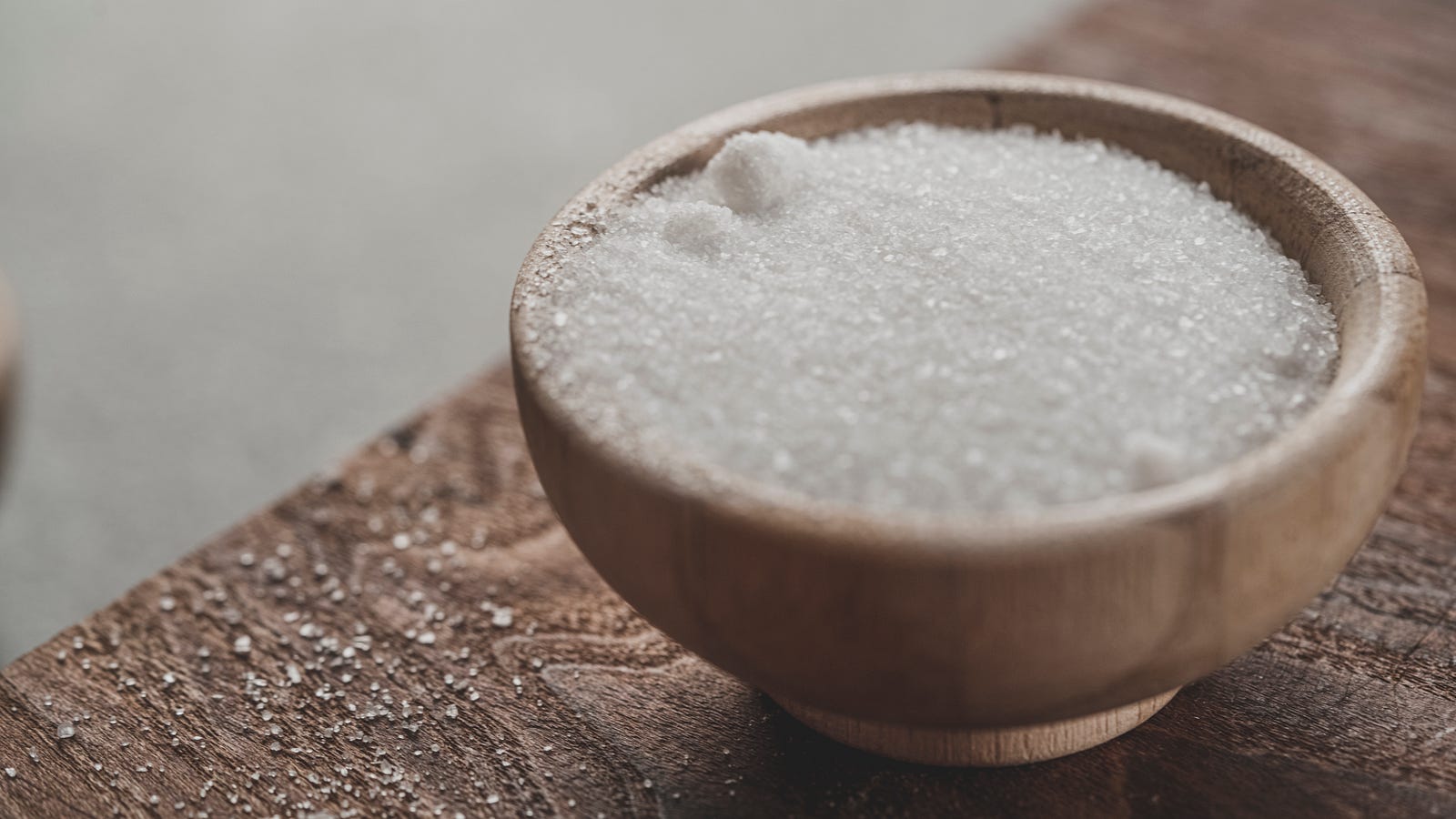
Are Artificial Sweeteners Addictive?
Yes, artificial sweeteners are addictive. Artificial sweeteners, like sugar, are sweet & increase your brain’s dopamine, its reward signal. So, the more you eat sweet foods, regardless of whether it’s sweetened with artificial sweeteners or sugar, the more you’ll start to crave sweet foods.
This could lead to an addiction to sweet foods & the inability to find other foods, like vegetables, tasty.
Should You Give Up Artificial Sweeteners?
If you want to give up being controlled by your cravings for good, I recommend that you give up artificial sweeteners & overly-stimulating foods altogether. Quitting artificial sweeteners would help you to reduce your sugar cravings & would help you to find other less palatable foods, like vegetables, more enjoyable.
I personally used artificially sweetened foods as a “crutch” during the first couple of months of my ketogenic diet when I was really struggling with cutting out sugar.
But, I noticed that artificially sweetened foods, like sugar, gave me a lot of cravings.
I also noticed that eating artificially sweetened foods led me to find other, less stimulating foods less palatable.
So, after I realized this, I decided that I would give up artificial sweeteners for good.
For me, it has been around half a year since I’ve intentionally had an artificially sweetened food & I feel great.
Now I have much fewer cravings for sweet foods & find other foods much more palatable.
I also find that I have more control & discipline over my life, which is also great!
So, if you’re thinking about quitting artificial sweeteners or sugar, I highly recommend that you start today.
if you still eat sugar, first cut that out.
Then, after you accomplish that, cut out artificially sweetened foods.
Doing both of these can help you to gain more control over your urges & make you happier overall.
For me, what kept me going during my cravings was looking at withdrawal symptom timelines on Google so I could see myself progress through the withdrawal symptoms over time.
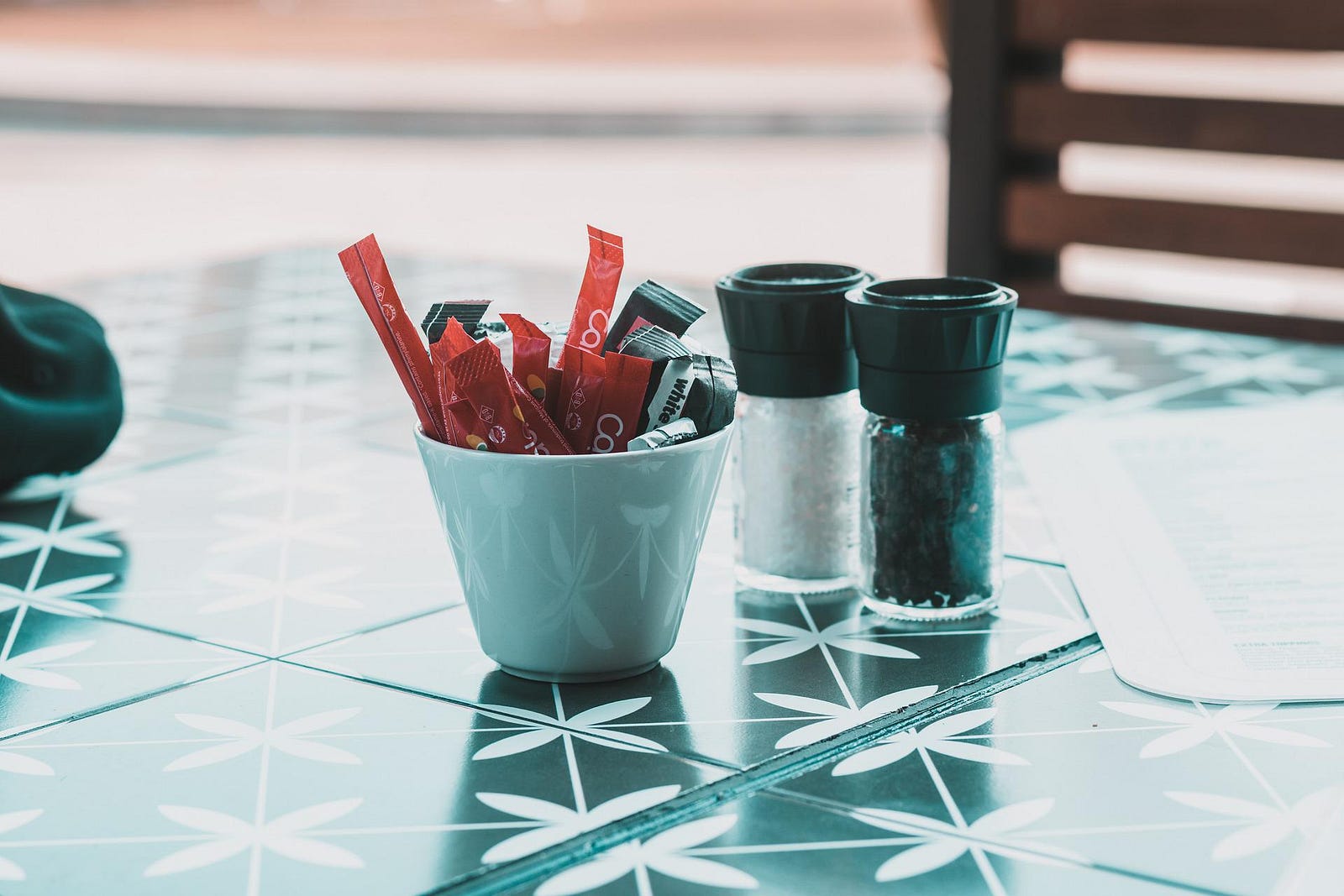
Conclusion
In conclusion, artificial sweeteners can be addicting. This is because they activate the brain’s reward system, similarly to sugar. If you’re in the beginning stage of your sugar-free eating journey, & find it hard to quit sugar altogether, you would benefit from using artificial sweeteners. But, once you’ve broken your addiction to sugar, you should also quit artificial sweeteners since they can make the other foods you eat seem less palatable.
If you’re interested in learning about which artificial sweeteners cause long-term brain damage & which ones don’t, you can read my article here where I discuss which artificial sweeteners you should avoid, & which ones you should use instead.
- How to Make a Layer Cake at Home - June 1, 2023
- Can You Still Lose Weight If You Aren’t in Ketosis? - February 8, 2023
- Can the Keto Diet Help With Depression? - February 8, 2023

